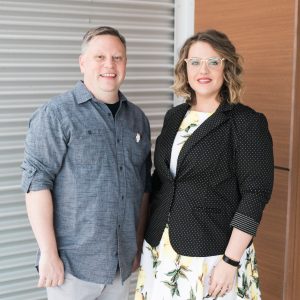
The University of Alabama was awarded a $300,000 grant from one of the largest foundations in the country to archive LGBTQ history in the South.
The grant, given by The Andrew W. Mellon Foundation, will allow the University and its partner, the Invisible Histories Project, to curate collections across the South, starting in Alabama and moving to Mississippi and Georgia.
“We’re an intermediary for regular people and institutions,” said Invisible Histories co-founder and director of development Maigen Sullivan. “There’s a lot of distrust within the queer community about institutions. So we’re mostly using word-of-mouth to do direct connecting with organizations, like Prides, and working with individuals to connect with libraries and have things archived.”
Invisible Histories began collecting documents and memorabilia, like clothing, diaries, banners, quilts and even board games, from the LGBTQ community in February 2018. Since then, the project has already donated 16 collections to its repository libraries in Birmingham, but strives to collect more manuscripts and materials from LGBTQ leaders and everyday people who identify as LGBTQ.
“The last 10 or 12 years of my work have been about giving queer people an opportunity to connect with their history,” said co-founder and director Josh Burford. “So for me, everything we save is a win, because we’re giving people back something that they didn’t imagine existed. And then by extension, have them envision the future based on the materials that we’ve collected.”
Although the bulk of the grant is for archival work in Alabama, Invisible Histories also plans to expand and begin collecting data in Mississippi and Georgia. Here, they plan to refine the model they began in Alabama to curate collections with the University of Mississippi and the University of West Georgia. The ultimate goal for both Burford and Sullivan is to have a site for Invisible Histories in every southern state.
Its partnership with UA is most evident in the University’s American studies and history departments, where the project is supplying coursework for classes, as well as an opportunity for students to become directly involved in the archival work. Dr. Edward Tang, chair of the department of American studies, explained that Alabama is the ideal location for Invisible Histories to begin its work, not only because of its vast resources, but because of UA’s central geographic location.
“The grant puts the University sort of at the hub of the intersection between LGBTQ+ studies and Southern studies,” Tang said. “It puts Alabama geographically as well as academically in the center of this discussion.”
In order to efficiently archive throughout the South, Invisible Histories also began the Queer History South Conference. The event, whose inaugural session was held in Birmingham March 28-29, brought together over 100 archivists, historians, students, faculty and community scholars to outline the goals and strategies for the group as they continue to build LGBTQ collections and histories around the South.
For more information on the Invisible Histories Project, visit invisiblehistory.org.
Contact
Stephanie Kirkland, College of Arts and Sciences, 205/348-8663
Source
Joshua Burford, josh@invisiblehistory.org; Maigen Sullivan, maigen@invisiblehistory.org; Dr. Edward Tang, etang@ua.edu
